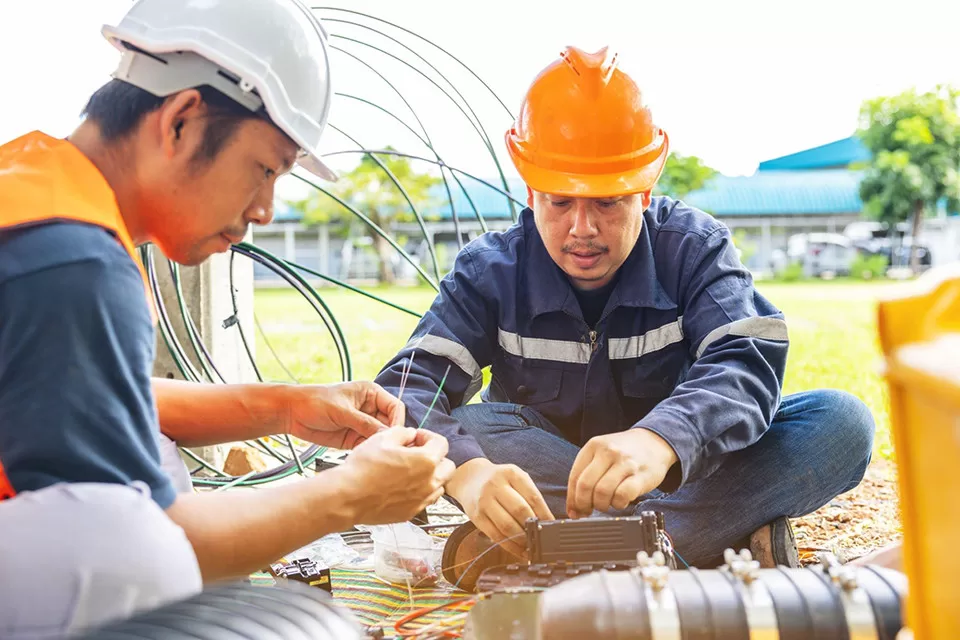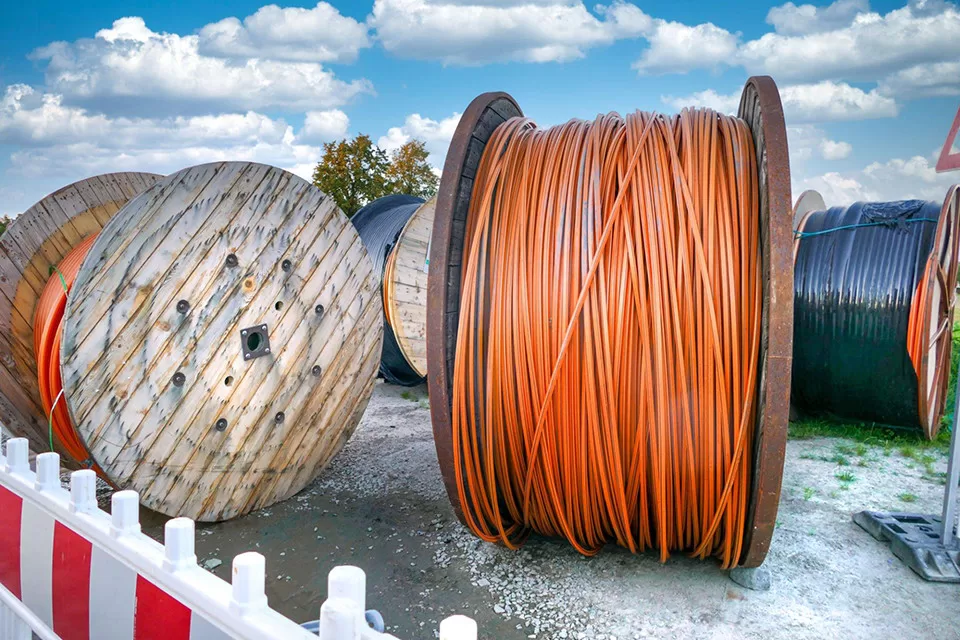
Outside plant cabling is an important part of the optical fiber communication network. It usually needs to deal with more severe environmental conditions, such as sun, rain, wind, temperature changes, etc. In order to ensure the stable operation and good transmission performance of the optical fiber network, the following are some optical fiber products you may need when doing outside plant cabling.
Outside Plant Fiber Optic Cable
This is the most basic element in the outside plant cabling system. This optical cable should have the ability to withstand harsh environmental conditions (such as temperature, sunlight, moisture, etc.) as well as the ability to resist mechanical stress. It usually includes single-mode fiber and multi-mode fiber to meet the needs of different application scenarios.
Fiber Optic Splice Closure
This type of splice closure is needed when two optical fiber cables need to be connected. It protects fiber optic connection points from harsh environments while allowing maintenance and inspection of the connection points.
Fiber Optic Termination Box
This box is usually used to terminate a length of fiber optic cable and protect its end from the environment. It also allows maintenance and inspection of the connection points.
Fiber Optic Connector
This device is used to connect fiber optic cables to fiber optic adapters or terminal equipment. Common fiber optic connectors include SC, ST, FC, LC, etc.
Fiber Optic Adapter
It is used to connect two fiber optic connectors so that they can communicate with each other. Fiber optic adapters are components used to extend the range of connections between fiber optic network devices.
Fiber Optic Attenuator
It is used to reduce the intensity of optical fiber signals in order to establish a balance of optical signals between different devices. This is very important to ensure stable transmission of optical signals between different devices.
Fiber Optic Splitter
This device is used to split a fiber optic signal into multiple parts so that it can be sent to different destinations. This is very useful for implementing multi-channel transmission.
Fiber Optic Switch
This device is used to switch optical signals between two or more fiber optic channels. It is one of the key components for enabling flexible fiber optic networks.
Fiber Optic Transceiver
It is a device that converts electrical signals into optical signals and sends them to the optical fiber network, and then converts the optical signals back into electrical signals. This is useful for enabling fast data transfer between computers and network devices.
Fiber Optic Network Management System
This system is used to monitor and manage the entire optical fiber network system. It can provide fault diagnosis, performance monitoring, configuration management and other functions to improve network availability and performance.

When selecting the above products, the following factors should be considered:
Environmental conditions
Consider whether your cabling environment will be affected by sunlight, rain, weathering, etc., and choose corresponding grade fiber optic products to meet these environmental challenges.
Transmission needs
Choose the appropriate type of fiber optic product based on your application needs. For example, single-mode fiber is suitable for long-distance transmission, and multi-mode fiber is suitable for short-distance or high-bandwidth transmission.
Compatibility
Make sure the fiber optic products you choose are compatible with your network equipment and end devices for optimal performance and compatibility.
Cost-Effectiveness
Choosing affordable fiber optic products can reduce overall project costs while meeting performance requirements.
Serviceability: Choose products that are easy to install, maintain and expand so that they can be easily upgraded or repaired when needed.
Safety
Considering that some optical fiber products may involve safety issues, such as fire protection, explosion-proof, etc., products that comply with relevant standards should be selected to ensure safety and reliability.
Technical support
Choose a brand that provides good technical support and after-sales service, so that you can get timely technical support and solutions when you encounter problems.
Conclusion
When selecting suitable outdoor plant optical fiber products, it is necessary to comprehensively consider the above factors and make selections based on actual application scenarios to ensure the reliability, stability and efficiency of the entire optical fiber network.
